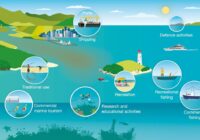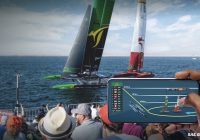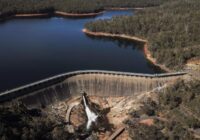Latest drop-in fuel technology minimises CO2 emissions, maintains boats’ range and performance.
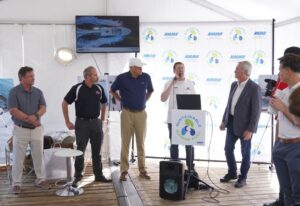
The advancement, innovation, and availability of sustainable marine fuels was the focus of an industry event during last week’s Discover Boating® Miami International Boat Show®. Sustainable marine fuels minimise CO2 emissions from recreational boating while maintaining boats’ range and performance. They are compatible with existing recreational boats, requiring no changes to fuel systems or engines.
The recreational boating industry has taken significant strides to reduce CO2 emissions and continues to pursue innovative solutions, including supporting research and introduction of sustainable marine fuels into the marketplace. Since 2000, emissions from marine engines have decreased more than 90% and fuel efficiency has increased more than 40%. Recreational boating emissions account for just 0.7% of U.S. transportation greenhouse gas emissions, compared to cars (58%), commercial trucks and buses (25%) and air (10%).
“With a focus on sustainability, marine fuel advancements in reducing emissions are one of several ways the marine industry is working to lower CO2 emissions,” said Jeff Wasil, Director of Environment, Health & Safety Compliance at the National Marine Manufacturers Association (NMMA). “There is no one-size-fits-all approach, so we are focused on providing boaters with access to a variety of technologies and products that make it easy and affordable for them to do their part to minimise CO2 emissions, including fuelling your boat with sustainable marine fuel.”
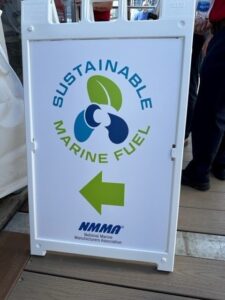
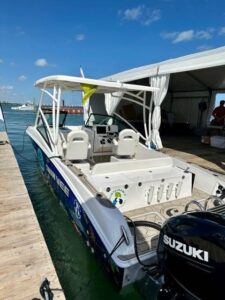
The three drop-in fuels demonstrated during the Miami event were:
- PurFuels® Ethanol-Free Reformulated Gasoline using Isobutanol (GEVO) and TXCeed corrosion inhibitor: A gasoline/isobutanol blend that reduces CO2 emissions by up to 30% relative to conventional fossil-based gasoline.
- Neste MY Renewable Diesel™: Reduces CO2 emissions by up to 75% relative to conventional fossil-based diesel fuel.
- EcoGen™ Ethanol-free Gasoline with Renewable Content by VP Racing: A partially renewable gasoline that reduces CO2 emissions by up to 30% more than E10 gasoline and does not contain ethanol.
All are expected to remain compatible with existing recreational boats equipped with internal combustion engines. They do not require any changes to the boat fuel system or engine, potentially making widespread consumer adoption possible. Renewable diesel, such as Neste MY Renewable Diesel™, is available on the West Coast of the U.S., meeting requirements of the California Low Carbon Fuel Standard. Purfuels® gasoline is available in Texas and will soon also be available for bulk purchase in Missouri, Illinois, Wisconsin and the East Coast from Maryland to Maine. EcoGen™ fuel will have limited availability in Texas beginning this summer, with expanded availability from Texas to Florida in 2024.
“VP Racing is excited to showcase our new EcoGen™ fuel, which is a drop-in fuel for gasoline-powered boats,” said Mark Walls, Director of R&D, Fuel Technology & Quality at VP Racing. “EcoGen delivers the same performance and range as current fuels but adds 10% renewable content to reduce the carbon footprint of the recreational marine Industry.”
“This sustainable fuel is now available to the petroleum industry and can be available to consumers at a local gas station,” said Jess Hewitt, President of HYPERFUELS. “We can show any petroleum distributor, with access to gasoline blendstocks or E0, how to create an ethanol-free gasoline and at the same time improve octane. Our program allows any dealer to start selling premium ethanol-free gasoline.”
“We are excited by the continued adoption of renewable fuels in the performance and recreation markets,” said Tim Cesarek, Chief Commercial Officer at Gevo. Partnership with suppliers like Hyperfuels allow us to advance the adoption of this technology into the market at a faster pace, and we are appreciative that the NMMA is making great strides to introduce these sustainable fuels to the marine industry.”
Added Wasil, “Further reductions in carbon emissions through use of sustainable marine fuels and e-fuels have the potential for the recreational boating industry to reach carbon neutrality. Support of the fuels demonstrated today will help facilitate further emissions reduction in the future.”





